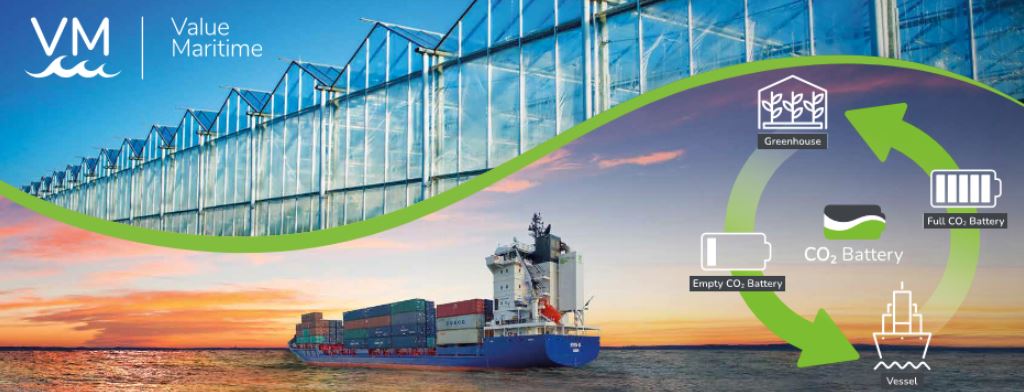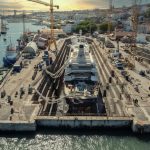Dutch maritime technology company Value Maritime and compatriot CO2 collecting firm Carbon Collectors will together perform a conceptual design study for a new fleet of tugs to be built by Carbon Collectors.
As informed, Value Maritime will work together with Carbon Collectors to investigate the feasibility of capturing carbon onboard the latter’s new marine gasoil- (MGO) fuelled tug vessels, using Value Maritime’s technology to ultimately ensure that Carbon Collectors’ fleet is CO2 neutral from the start.
Jointly, the two teams will investigate and determine the required installed power of the diesel generators, the estimated CAPEX / OPEX, the best discharge options for the captured CO2 as well as the optimal solution for unloading and underground storage.
“This is a first for us. We’ve conducted many studies in relation to larger sea-going vessels but now Carbon Collectors are affording us the opportunity to apply our carbon capture expertise to tugs, extending the reach of our sustainable shipping solutions. We’re excited to see how these vessels will perform with our … technology,” Christiaan Nijst, Director and Co-Founder – Value Maritime, commented.
Pulling Ahead With carbon capture
Once the design is proven, Carbon Collectors aims to use Value Maritime’s carbon capture module “to the fullest extent”. The company is currently designing a custom fleet of power-efficient tugs with the construction of the first vessels scheduled to start in the first quarter of 2024.
Once operational by 2026, the MGO fuelled tugs could be effectively capturing all of their CO2 emissions onboard, according to Carbon Collectors.
Both parties will not only review the carbon capture abilities of the vessels but jointly look into the optimal solution for safely unloading and permanently storing the CO2 underground.
“As a company aiming to speed up the reduction of CO2 emissions, we also want to make sure that our own fleet contributes by becoming carbon-neutral as fast as possible. For years to come, carbon-neutral fuels will not be available in amounts that are large enough to fulfill demands, so carbon capture and storage seems the only feasible option in the short and medium term,” Haije Stigter, Technical Director – Carbon Collectors, explained.
A clean circular solution
Value Maritime recently developed “Filtree”, a system that cleans both air and water from all ship types and includes an integrated carbon capture feature making today’s fleet (newbuild or retrofit) not only sustainable today but future-proof for tomorrow.
The CO₂ capture feature removes and stores carbon from the vessel’s exhaust gases and uses it to charge a CO₂ battery which can be offloaded and re-used to facilitate the growth of crops, used to enrich future fuels or it can be safely stored until needed. This is described as a “truly clean circular solution”.
Value Maritime’s vision is to decrease the environmental footprint of shipping and significantly contribute to improving the overall sustainability of the maritime industry. Since 2017, the technology has been helping shipowners and operators to increase their competitiveness by achieving valuable emission reductions and financial savings.
Carbon Collectors wants to reduce CO2 emissions by 6 million tonnes per year by 2030. The firm offers the service of collecting, transporting and safely storing the CO2 they capture in empty offshore gas fields. Using existing technology, the company is reducing CO2 emissions in Western Europe and can assist large and small emitters. Carbon Collectors is working with a range of CO2-emitters to collect, transport and store their captured CO2. The company also works with natural gas field operators to obtain access to more than 100 million tonnes of CO2 storage capacity in the Southern North Sea.
In 2021, Carbon Collectors finished the detailed design and received approval in principle from French classification society Bureau Veritas.
The concept was developed by Dutch shipyard Royal Niestern Sander, the shipping company Royal Wagenborg, and Imodco, part of the SBM Offshore Group.
Construction of the first barge is scheduled to start in 2024 and some two years later, the company will collect, transport and store the first CO2 with the new fleet.
Source: Offshore Energy





